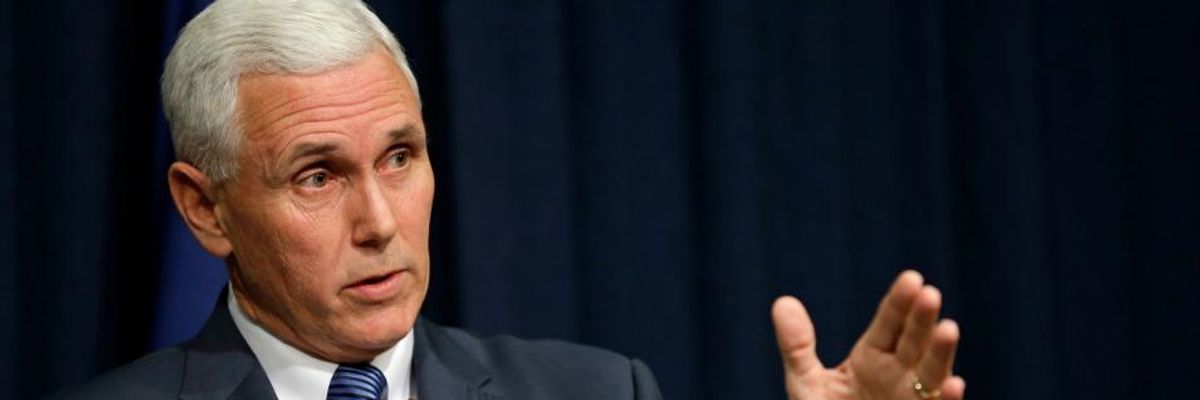Indiana Republican Governor Mike Pence just signed into law controversial legislation that gives legal cover, under the guise of "religious liberties," to any businesses or individuals who wish to violate anti-discrimination laws.
The legislation is part of a nation-wide push to legalize discrimination against lesbian, gay, bi-sexual, queer, and transgender communities by passing bills at the state level. It became law over the vocal objections of people across the state and nation.
The so-called "Religious Freedom Restoration Act" was approved by Indiana's Republican-controlled House and Senate over widespread objections from across the state and nation. It is similar to Arizona's SB 1062, which was vetoed by Governor Jan Brewer last year.
The bill "prohibits a governmental entity from substantially burdening a person's exercise of religion" unless there is a "compelling government interest."
The law will allow businesses, for example, to refuse services to people perceived to be LGBTQ. However, it is not clear exactly where the bill's boundaries lie.
An ACLU petition opposing the legislation, which garnered nearly 20,000 signatures, states, "This poorly written bill is so broad it goes far beyond opening the floodgates to discrimination against LGBT people. This bill will allow individuals to claim that any number of laws--including but not limited to child welfare laws and nondiscrimination laws--don't apply to them."
According toMother Jones writer Molly Redden, "An employer who refused to hire Jewish employees could cite his religious beliefs as a defense against discrimination lawsuits. So could a landlord who refused to rent to Muslims, or a business that refused to serve atheists."
People across the country spoke out against the bill, with groups from Disciples of Christ to Gen Con threatening to boycott holding events in the state and actor George Takei loudly denouncing it.
"The timing of this legislation is important to understanding its intent: The bill was introduced as a backlash reaction to achieving marriage equality for same-sex couples in Indiana," said Jane Henegar, executive director of the ACLU of Indiana.
Eunice Rho, advocacy and policy counsel for the ACLU, warned, "Unfortunately, the fight continues, with states like Arkansas and Georgia dangerously close to passing similar legislation."

